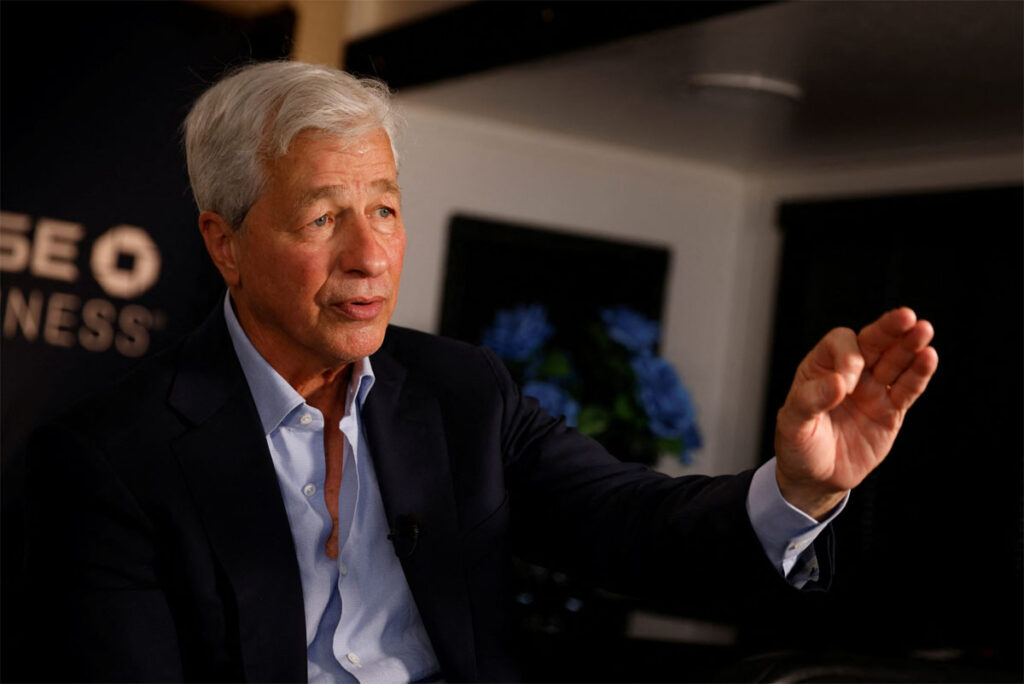As the ideological divide continues to widen in the United States, the nation’s largest bank, JPMorgan Chase, finds itself in the crosshairs of a campaign led by Republican state officials. Accusing the bank of religious discrimination, these officials claim that JPMorgan Chase has denied banking services to customers based on their political or religious affiliations. The clash between the conservative values upheld by these officials and the inclusive stance proclaimed by the bank raises crucial questions about the role of corporations in a polarized society.
Nineteen Republican state attorneys general penned a letter to JPMorgan Chase CEO Jamie Dimon, pointing out what they see as a “pattern of discrimination” within the bank’s business practices.
“We call on [JPMorgan] Chase to stop its religious and politically biased discrimination and start living up to its commitment to an inclusive society where everyone feels welcomed, equal, and included,” wrote Kentucky Attorney General Daniel Cameron.
They alleged that JPMorgan Chase terminated client accounts due to religious beliefs, a claim that the bank vehemently denies. The attorneys general demanded that the bank respond to detailed survey questions related to conservative concerns, such as free speech and religious rights.
The accusations highlight the complex challenge faced by businesses in a country marked by deep ideological divisions. As partisan politics increasingly dominate the national stage, states have taken matters into their own hands, aligning themselves along opposite sides of contentious issues such as environmental regulations, abortion rights, gun laws, and diversity and inclusion. Corporations, accustomed to operating seamlessly across state lines, now find themselves caught in the middle.
Conservative advocates argue that corporations prioritize issues like gay rights and reproductive health access over the freedom of individuals to express their opposition based on faith. The letters and emails sent to JPMorgan Chase echo this sentiment, claiming that the bank suspended the accounts of several conservative, faith-based organizations due to religious reasons.
JPMorgan Chase, however, firmly refutes these allegations, maintaining that it has never terminated a client relationship based on political or religious affiliation. “We have never and would never exit a client relationship due to their political or religious affiliation,” a spokesperson said in a statement. The bank points out that it serves 50,000 accounts with religious affiliations. Nonetheless, the Republican officials demand public clarification from the bank on a range of issues central to conservative causes, using a new tool called the Viewpoint Diversity Score Business Index. This index measures corporate respect for free speech and religious freedom, providing investors with a means to evaluate companies accordingly.
The clash between JPMorgan Chase and the Republican officials underscores the widening divide in American society. While JPMorgan Chase celebrates its high scores in surveys conducted by the Human Rights Campaign, an LGBTQ advocacy group, it declined to participate in the Viewpoint Diversity Score Business Index survey, citing a lack of alignment with the bank’s diversity initiatives. This discrepancy highlights the challenge of balancing diverse perspectives and values within a single institution.
As the pressure mounts on JPMorgan Chase, the battle for inclusivity and respect for diverse viewpoints continues to intensify. The upcoming annual shareholders meeting serves as a crucial moment for the bank to address the allegations and demonstrate its commitment to an inclusive society that values equality and respect for all. In this era of ideological strife, the role of corporations in upholding fundamental American values becomes increasingly scrutinized. The outcome of this clash will undoubtedly shape the future landscape of business practices and societal harmony.
